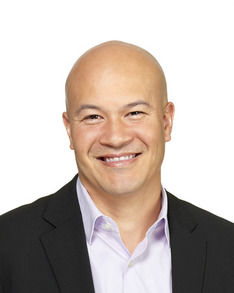Details
February 21, 2019
12:00PM - 1:00PM
OAND Webinar - Handling our Baggage
Considering how bias may impact the client care process
February 21st - 12:00 pm - 1:00 pm
Providers and clients may bring unconscious biases and differences in communication styles into counseling sessions. Not being aware of this baggage can negatively impact the client-provider relationship and hinder the care process. The Academy of Nutrition and Dietetics, workplaces, school settings, and internship programs have all made great strides to build our cultural competency skills. One topic that has not been brought up is how implicit bias (be it gender, race, ethnic, socioeconomic, political affiliation, etc.) for the client and/or provider may impact the care process. This is of particular importance as our profession interacts with the general public.
This session seeks to help dietitians recognize possible "baggage" they and others may carry and identify ways to handle it so the needs of the US population can be more effectively met today and in the future. Specifically, speakers will review the latest literature on how race and gender impacts the care process and health outcomes across health care fields and will open a dialogue about what dietetics professionals can do as individuals and as a profession.
Speaker
Angel Planells, MS, RDN, CD, FAND, ACP Nutrition

Angel Planells is a very busy person wearing multiple hats in the profession. He is currently a national media spokesperson for the Academy, and president of Washington State. He has been honored for his work as chair of the Academy's National Organization of Men in Nutrition (NOMIN) member interest group for recruiting and retaining men in the nutrition and dietetics profession.
Learning Objectives
- Describe how the phenomena of "in-group" and "out-group" plays a role in our effectiveness as healthcare providers
- Recognize that both providers and clients may have implicit bias, but at the end of the day, mutually we can march towards behavior change together
- Identify strategies and resources available to work with clients especially if implicit bias clouds your judgment as a healthcare provider
Learning Codes
1040 - Cultural Sensitivity
3020 - Assessment of target groups, populations
7020 - Conflict Management
Cost
OAND Members and Supporter Members Free
Nonmembers $24.95
Register online today
Printer-Friendly Version
Add to Calendar
aCLuDhaqizCaPxAftmqF167204
02/21/2019 12:00 PM
02/21/2019 01:00 PM
false
OAND Webinar - Handling our Baggage
Providers and clients may bring unconscious biases and differences in communication styles into counseling sessions. Not being aware of this baggage can negatively impact the client-provider relationship and hinder the care process. The Academy of Nutrition and Dietetics, workplaces, school settings, and internship programs have all made great strides to build our cultural competency skills. One topic that has not been brought up is how implicit bias (be it gender, race, ethnic, socioeconomic, political affiliation, etc.) for the client and/or provider may impact the care process. This is of particular importance as our profession interacts with the general public.
This session seeks to help dietitians recognize possible "baggage" they and others may carry and identify ways to handle it so the needs of the US population can be more effectively met today and in the future. Specifically, speakers will review the latest literature on how race and gender impacts the care process and health outcomes across health care fields and will open a dialogue about what dietetics professionals can do as individuals and as a profession.
Speaker
Angel Planells, MS, RDN, CD, FAND, ACP Nutrition
Angel Planells is a very busy person wearing multiple hats in the profession. He is currently a national media spokesperson for the Academy, and president of Washington State. He has been honored for his work as chair of the Academy's National Organization of Men in Nutrition (NOMIN) member interest group for recruiting and retaining men in the nutrition and dietetics profession.
Learning Objectives
Describe how the phenomena of "in-group" and "out-group" plays a role in our effectiveness as healthcare providers
Recognize that both providers and clients may have implicit bias, but at the end of the day, mutually we can march towards behavior change together
Identify strategies and resources available to work with clients especially if implicit bias clouds your judgment as a healthcare provider
Learning Codes1040 - Cultural Sensitivity3020 - Assessment of target groups, populations7020 - Conflict Management
CostOAND Members and Supporter Members FreeNonmembers $24.95
Register online today
February 21st - 12:00 pm - 1:00 pm





